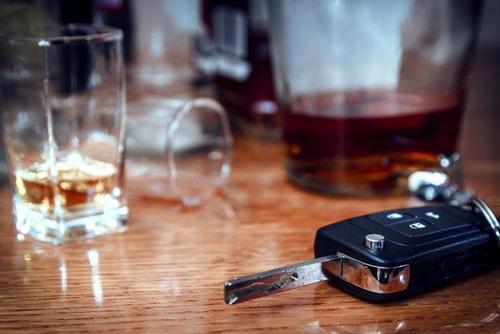Statutory Suspension or Revocation of Your License for a DUI
 Getting caught driving under the influence (DUI) can be a frightening experience. Knowing what to expect can help reduce some of the anxiety, but it can also give you the tools you need to develop a strategy. It is important to understand how the law works regarding the statutory suspension and revocation of a driver’s license for those who have been arrested on charges of DUI.
Getting caught driving under the influence (DUI) can be a frightening experience. Knowing what to expect can help reduce some of the anxiety, but it can also give you the tools you need to develop a strategy. It is important to understand how the law works regarding the statutory suspension and revocation of a driver’s license for those who have been arrested on charges of DUI.
What Happens After the Arrest?
Once you are arrested for DUI, you must choose whether to submit to chemical tests or decline. If you decline, or if your results exceed the legal limits, the Illinois Secretary of State receives confirmation of your DUI arrest. From there, the agency sends you notification of the summary suspension/revocation. This is typically sent out within one to two weeks after they receive your test results or refusal to test.
When Does Your Suspension Go Into Effect?
Your suspension does not officially go into effect until the 46th day after your arrest. This gives you time to contest the suspension and potentially work to mitigate the consequences. If you do not contest the charges, then the suspension is automatic. Driving after that date can result in additional consequences, including charges for driving while on a suspended license.
How Long Does the Suspension Last?
The duration of a DUI license suspension will depend on your charges. If you were arrested for a first-offense DUI and have no aggravating factors, the typical timeframe is six months. If it is your second offense, and there are no aggravating factors, the timeframe could be up to a year. It is important to understand that aggravating factors, such as leaving the scene of an accident or causing serious injury to another can increase these penalties, even if it is your first offense.
Those who refuse to submit to chemical testing stand to lose their license for a year on the first refusal and up to three years for any subsequent refusals. Aggravating factors can also increase this timeframe. As such, you should carefully consider whether you are more at risk for refusing a test, or more at risk for submitting to one.
Fighting Back Against the Charges
Despite what you may have been told, you do not have to simply accept the charges and the consequences when you have been charged with driving under the influence. You can—and should—fight to ensure your rights are fully protected. Contact an experienced Elgin criminal defense attorney for help can help. Dedicated and experienced, we will fight aggressively for the most favorable outcome possible for your situation. Learn more by scheduling a consultation with our office today.
Source:
https://www.cyberdriveillinois.com/publications/pdf_publications/dsd_a118.pdf







